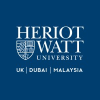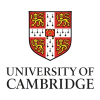Snabbfakta
-
- Midlothian
Ansök senast: 2024-06-14
Research Associate in Signal Processing/ Machine Learning for Wireless Communications
Directorate: School of Engineering & Physical Sciences
Salary: Grade 7 (£36,023-£45,585)
Contract Type: Full Time (1FTE), Fixed Term (12 Months)
Detailed Description
A Post-Doctoral Research Associate (PDRA) is needed for a research project, fully funded by the Engineering and Physical Sciences Research Council (EPSRC), initially for 12 months from 1st July 2023 or as soon as possible but can be extended depending on the availability of funding.
The research project COG-MHEAR: Towards cognitively inspired 5G-IoT enabled, multi-modal Hearing Aids funded by UK research council (EPSRC), involves six academic partners including University of Edinburgh and industrial partners including Bell-Labs, Alcatel-Lucent Technologies, USA and Sonova AG. The research will explore and validate the new concept hearing-aid to transform hearing care by 2050, we aim to completely re-think the way HAs are designed. Our transformative approach - for the first time - draws on the cognitive principles of normal hearing. Listeners naturally combine information from both their ears and eyes: we use our eyes to help us hear.
We will create "multi-modal" aids which not only amplify sounds but contextually use simultaneously collected information from a range of sensors to improve speech intelligibility. Adding in these new sensors and the processing that is required to make sense of the data produced will place a significant additional power and miniaturization burden on the HA device. We will need to make our sophisticated visual and sound processing algorithms operate with minimum power and minimum delay, and will achieve this by making dedicated hardware implementations, accelerating the key processing steps.
In the long term, we aim for all processing to be done in the HA itself - keeping data local to the person for privacy. In the shorter term, some processing will need to be done in the cloud (as it is too power intensive) and we will create new very low latency (<10ms) interfaces to cloud infrastructure to avoid delays between when a word is "seen" being spoken and when it is heard. We also plan to utilize advances in flexible electronics (e-skin) and antenna design to make the overall unit as small, discreet, and usable as possible.
We are seeking to recruit a highly motivated PDRA willing to work as part of a team in this project to support the development of IoT communications links and machine learning. Applicants must have a PhD degree (or have submitted a PhD thesis) in Electrical, Electronic, computer engineering, Computer science or a related discipline, have excellent knowledge and strong background in Signal Processing for wireless communications/ networks (in particular physical/ cross layer technologies), MIMO signal processing, interference management, machine learning, beamforming, precoding, channel estimation, IoT, user interface technologies, mathematics and optimisation evidenced by high-quality research publications.
The applicants must also have excellent written, oral presentation, and interpersonal skills, and software programming skills (Matlab and/or C/C++/JAVA/Python) appropriate for wireless communications simulation and testbed (USRP) work. It is desirable that the applicants have some industrial experience working in telecommunications/machine learning/networks/programming/testbed.
The project provides an excellent opportunity for career development and to make an important contribution to a very challenging field in wireless communications and will offer opportunity work with world leading researchers. Possible placement opportunities with Bell-Labs and Alcatel-Lucent and SONOVA will be available through this post.
Key Duties and Responsibilities
The successful candidate is also expected to be involved in our outreach activities, with roles that can be tuned to the specific preferences of the candidate but will involve for example interviews, talks for the general public and preparation of experimental demonstrators.
Education, Qualifications and Experience
Essential Criteria
Desirable Criteria
About our Team
This post will be placed within the digital signal processing for intelligent systems and communications (SPCOM) group, Institute of Signals, Sensors and Systems (ISSS) and in collaboration with National Robotarium on Assistive Living and Health.
The digital signal processing for intelligent systems and communications (SPCOM) group is involved in a range of research projects at the leading edge of advanced signal processing algorithms, information-theoretic studies, and real-world effects with key applications in communications systems, remote sensing, IoT hearing aid designs and Radar. Broader application areas are also addressed through the team’s involvement in the University Defence Research Centre. This group also strongly linked with University of Edinburgh IDCOM. Industrial collaborators include Bell-Laboratories, Alcatel-Lucent, Defence Science and Technology Lab (DSTL), and QinetiQ.












